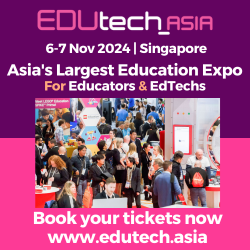As we stand at the cusp of a technological revolution in the educational sector, Virtual Reality (VR) and Augmented Reality (AR) emerge as beacons of transformative learning methodologies. With the introduction of VR into classrooms across Eastern Europe, educators are navigating a new realm of possibilities and challenges. This journey, while promising, calls for a comprehensive understanding of both VR and AR’s potential to redefine educational paradigms.
The promise of VR and AR in education
VR’s immersive experiences provide students with an unparalleled opportunity to engage with content in a deeply interactive manner. From historical explorations to scientific simulations, VR brings abstract concepts to life, offering a form of experiential learning that extends beyond traditional classroom boundaries. Similarly, AR, by overlaying digital information onto the real world, offers a complementary, immersive experience that enhances learning through interactive overlays and real-time information, making education not only accessible but also engaging.
The integration of VR with 3D printing and AR opens up new avenues for creative learning. In our school, pioneering efforts to combine these technologies have allowed students to design and visualise in virtual environments before bringing their creations into the physical world through 3D printing. This synergy fosters a hands-on understanding of subjects, bridging the gap between theoretical knowledge and practical application.
Navigating the challenges
Despite the excitement surrounding VR and AR, their integration into education is not devoid of challenges. Health concerns, particularly the impact on young eyes and the potential for increased screen time, call for a balanced approach to technology usage. Additionally, the cost, infrastructure requirements, and hygiene considerations pose significant hurdles. However, by adopting strategic planning and community partnerships, we are committed to overcoming these barriers, ensuring that VR and AR technologies benefit every student.
Fostering digital literacy and safety
As we embrace advanced technologies, the importance of digital literacy cannot be overstated. Educating students on navigating digital environments safely and responsibly is paramount. This includes lessons on privacy, online safety, and the ethical use of technology. Moreover, the role of educators is crucial in this transition. Continuous professional development ensures that teachers are well-equipped to incorporate VR and AR into their curriculums creatively and effectively.
Community engagement and ethical considerations
The journey towards integrating VR and AR in education extends beyond the classroom. Engaging parents and the broader community is essential in building a supportive ecosystem. Additionally, as we advance, the sustainability and ethical production of VR and AR equipment become increasingly important. Investing in environmentally friendly and ethically produced devices reflects our commitment to not only advancing education but also to upholding responsible practices.
Conclusion
The integration of VR and AR into education presents an exciting frontier, offering the promise of immersive learning experiences that prepare students for a future filled with technological advancements. By addressing the challenges head-on, fostering digital literacy, supporting educators, engaging the community, and adhering to ethical practices, we can harness the full potential of these technologies. This holistic approach ensures that we are not merely adopting new tools but are thoughtfully integrating innovative solutions that enrich the educational experience, preparing our students to thrive in a digital world. As we contribute to the dialogue at #EDUtech_talks, let’s embrace the opportunity to shape the future of education together, through insightful dialogue and innovative ideas.
Author: Tomasz Kraszewski, COO, ATENA Primary School, Sosnowiec.
As the COO and the organisation and administration specialist at ATENA Primary School in Sosnowiec, I oversee the daily operations and administrative processes of the educational institution. I have been working in the field of data security. I am proficient in VR, Lego Robotics, and GCP, and I use these skills to enhance the learning experience and the security of the students and staff. I am passionate about creating a safe, innovative, and inclusive environment for education, and I strive to contribute to the mission and vision of ATENA Primary School.





